January is a hot month in the hiring world. Sales managers and recruiters are getting ready to add fresh faces to their sales teams. With a full plate and several positions to fill, it can be tempting to rush the hiring process or reduce the level of scrutiny applied to candidates. However, giving in to this temptation can be very costly. Here are three quick tips to keep in mind when screening and hiring new salespeople in 2014:
1. If you are looking for Hunters, you need to test and interview for Drive: Need for Achievement, Competitiveness, and Optimism. All three are essential for strong, sustained new account acquisition.
2. When a candidate simply has industry experience without a sales background, you need to make sure he/she has sales aptitude, and that you have the time and resources to train him properly. It can often be easier to hire an experienced salesperson and team him up with an industry expert.
3. Scrutinize candidates from large companies carefully. You need to find out what really made them successful . . . the big brand or their own hard work.
Here’s to your successful sales hiring and the prosperity it brings in 2014!
–
Dr. Christopher Croner and Richard Abraham are authors of Never Hire a Bad Salesperson Again and developers of the proprietary and patented sales test, The DriveTest™, for sales candidates. For more information, click here.
 Account Login
Account Login







